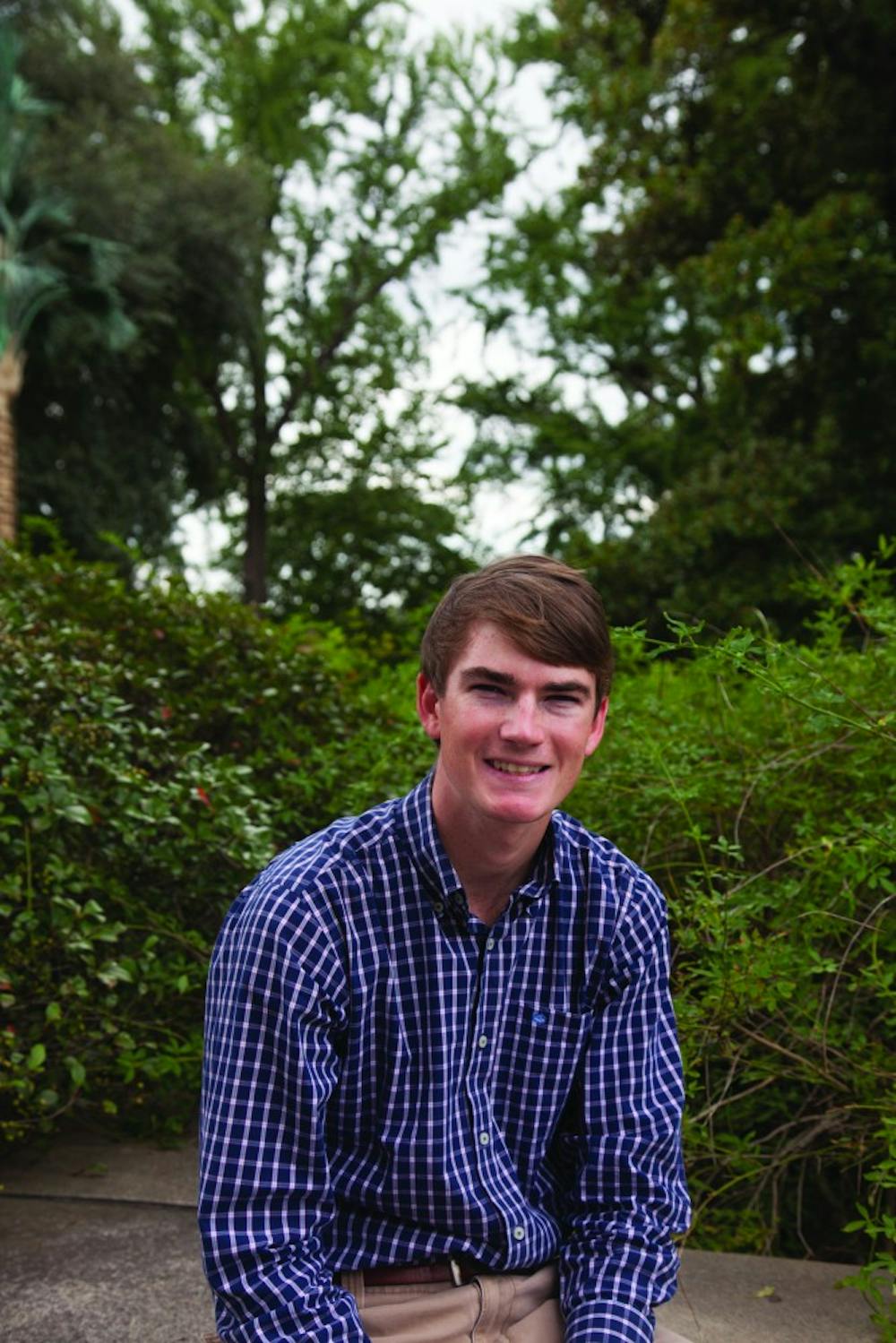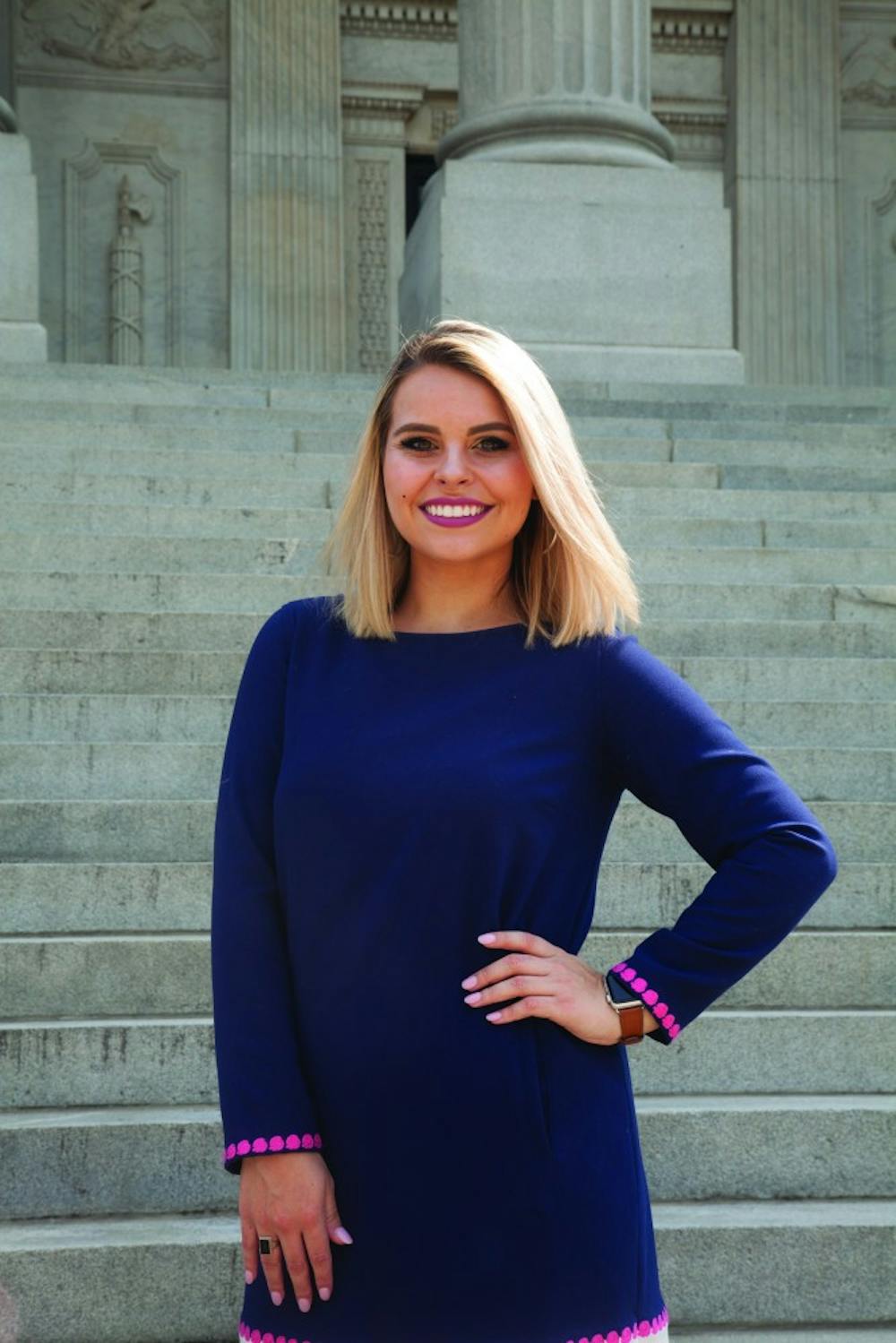Some college students ignore politics completely, some feign polite interest when it comes up in casual conversation and some have a broad understanding of the subject. But a small fraction of students and recent graduates are invested enough in politics to willingly sacrifice their time, money and effort to work for a political campaign.
For those of us on the outside of the political sphere, these types of positions are often shrouded in mystery. It’s difficult to find any information on student experiences working or volunteering within the realm of politics. The lack of available information raises a few important questions: How do students and recent graduates become involved in political campaigns? What do they actually do? And most importantly, why would a student sacrifice so much time and effort to work for a candidate that may or may not be successful?
For many students, becoming involved with local politics serves as an opportunity to network with business officials, learn about government processes and gain rare insight into a tumultuous political landscape. In this realm, 20-year-olds can climb the chain of command successfully in a matter of months. They are assigned responsibilities that students without this opportunity might not receive until their first job months after graduation. They are required to face the real-world demands of an industry that never sleeps and juggle the task of keeping up political appearances and the necessary grunt work that comes with the job.
Three days after crossing the stage at graduation, former Student Body President Michael Parks started working for South Carolina’s current governor, Henry McMaster.

“The president, the governor, US senators, all typically have a younger staff member whose sole role is to be like their personal aide. It typically is a younger person, because it’s kind of like the entry-level gig. But in a weird way it’s very valued because you learn a lot, very quickly,” Parks says.
Parks was hired to help with the transition team after McMaster succeeded to the governorship after Nikki Haley became the United States ambassador to the United Nations. Parks held the position for 15 months, and he is now pursuing a degree at the University of South Carolina School of Law.
As McMaster’s bodyman, aide de camp and special assistant, Parks’ responsibilities varied day to day, but generally included keeping the governor on-time, organized and informed. His tasks included providing the governor with all of the necessary materials he needed to make decisions, respond to crises and adequately serve the state.
“As a result, I needed to be well informed and aware of whatever the topic of the day is, or the topics of the day and then knowing who the appropriate person in the office is that he needed,” Parks says. “Time is money, and his time is the people’s time and the people’s money,” he continues.
His position, like other positions in the industry, didn’t conform to traditional office hours — especially during a key midterm election season. Throughout the summer, Parks traveled with the governor throughout the state on a promotional bus tour.
“There were days we would leave at seven in the morning, come home at midnight, and then do it again the next day,” Parks says.
“You can pick up the entire flavor of the state on a charter bus in a week, very quickly, especially if you do it twice,” he says, referring to the second bus tour preceding the Republican runoff election between McMaster and John Warren.
As with most positions in politics, Parks was always on-call during his tenure as special assistant.
“You have to have your phone on at night. It’ll ring at eleven [p.m.], it’ll ring at six in the morning. Because for him, when he needs something done, he needs it done. Part of the job is understanding that – that’s what you signed up for,” Parks says. “My friends never really understood. We would make plans like, ‘Saturday, let’s go do this’ and 30 minutes before I would have to say, ‘actually I can’t go anymore. I have to go in.’”
Scott Harriford also became heavily involved with a major political campaign shortly after graduation. During Harriford’s final year at USC, he worked as a State House page. This is where he was introduced to James Smith, who at the time was pursuing a District 20 Senate seat. But when Harriford started working for the campaign in June of 2016, Smith hadn’t yet announced his intention to run for governor. A year later, he secured the Democratic nomination. He will face incumbent Governor Henry McMaster in the general election this November.
After two months of working for Smith, Harriford was promoted to deputy political director. Like Parks, his primary responsibilities involve assisting the candidate with a myriad of assignments. This includes briefing Smith before meetings and events, providing talking points, and assisting with campaign finance activities. But it’s nearly impossible to summarize the daily nuances of the job.
“‘Political Director’ wouldn’t encompass everything that I do,” Harriford says.
Harriford also serves as Smith’s driver and right-hand man. He’s with Smith “pretty much all day, every day.” He picks Smith up each morning and drops him off each night. Like Parks, he also traveled across the state this summer to campaign with Smith.
For many students, working closely with high-profile elected officials can come with a lot of pressure. “Deputy Political Director” or “Special Assistant to the Governor” are titles that come with heavy responsibilities – especially as a recent graduate.
“People see James and I’m not far behind. It’s definitely a change of pace as far as my role and how I conduct myself in public and things like that,” Harriford says.
AC Parham, a 2017 graduate, also had the opportunity to work closely with a major political candidate. During the thick of the primary season this summer, she would volunteer every day for Smith's campaign. As soon as she got off work from her job at a local law office, she would drive to the campaign headquarters to stuff envelopes with promotional material and deliver yard signs and bumper stickers.

After two months of volunteering, Parham was promoted to become a member of Smith’s campaign finance committee. This allowed her to accompany Smith and his running mate, Mandy Powers-Norrell, to various fundraisers and events.
Mark Bonnoitt works closely with the governor as the Midland’s field director for Governor McMaster’s campaign. He is a fourth-year political science student at USC and he started working for McMaster’s campaign in April. Like Parham, Bonnoitt recalls working intense hours May through June – at one point clocking 60-80 hours a week.
He is taking the fall semester of classes off in order to work full time. As Midland’s field director, he spearheads projects to increase local voter turnout rates via phone banking, door knocking, hosting events and recruiting volunteers. In June, he helped to organize the #SCWinning Bus Tour — the same bus tour on which Michael Parks accompanied Governor McMaster.
“Recruiting volunteers is a huge aspect of my job, and I was able to do that because I’m still a student at the University of South Carolina,” Bonnoitt says. “That’s why it’s so cool that the governor was able to give me the opportunity, because it opens up a lot of doors, not only for me but for the 22 interns and other student volunteers that we had on the campaign.”
Bonnoitt often has to balance the professional and physical tasks that the job demands.
“There were the times when you’re banging up a sledgehammer, putting signs in the ground, but there’s also the times when you’re on the phone with the senator from York County,” he says.
“It brings it full circle because most likely the congressman or senator or representative understands where you are because he’s been there too,” Bonnoitt says.
These are positions where there are no real “off” hours. There isn’t a standard set of job requirements, and each day is completely different from the previous.
For current students interested in becoming involved with local politics or working for an election campaign, Michael Parks summarizes it well – “It’s a job for a hustler. If you’re not ready to hustle, it’s not for you.”



